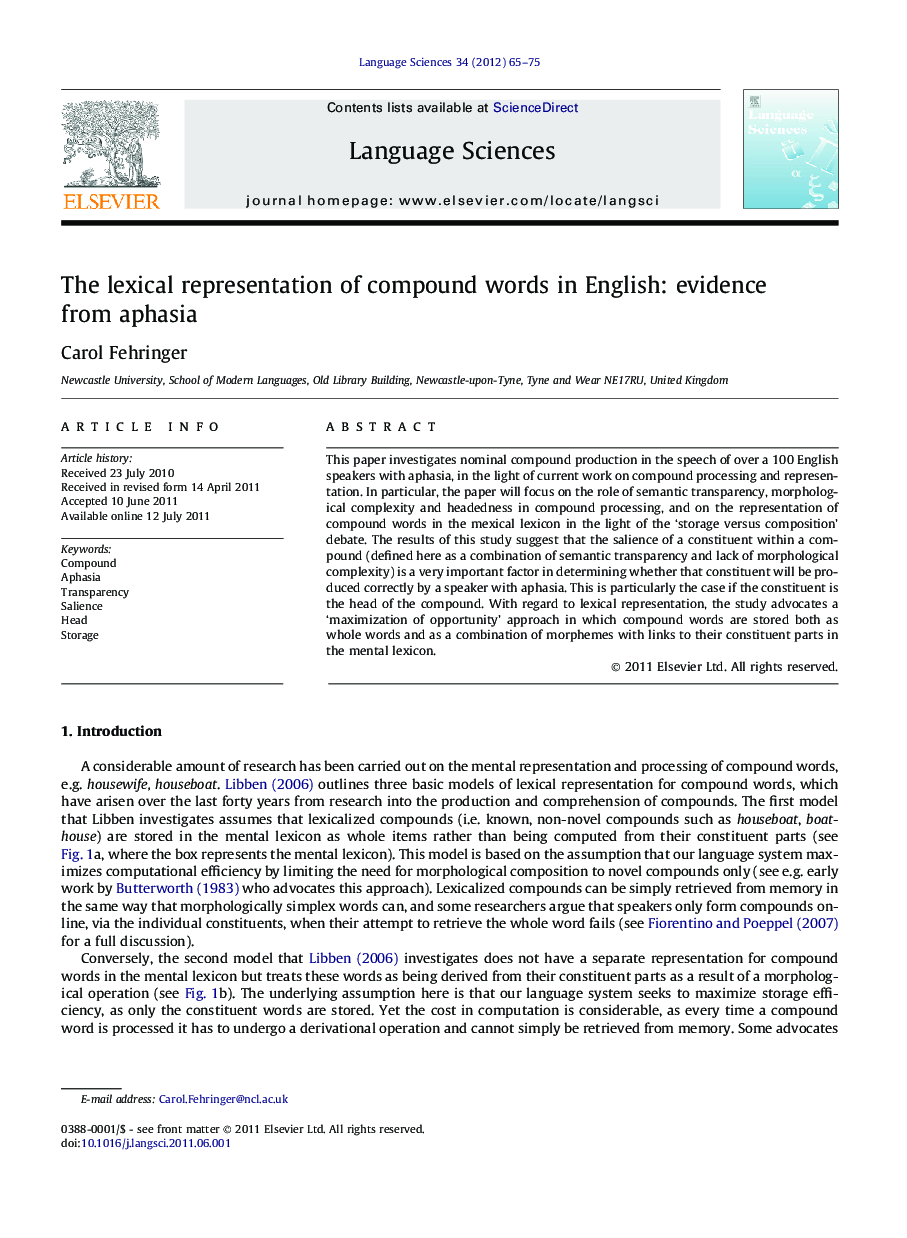| Article ID | Journal | Published Year | Pages | File Type |
|---|---|---|---|---|
| 1103399 | Language Sciences | 2012 | 11 Pages |
This paper investigates nominal compound production in the speech of over a 100 English speakers with aphasia, in the light of current work on compound processing and representation. In particular, the paper will focus on the role of semantic transparency, morphological complexity and headedness in compound processing, and on the representation of compound words in the mexical lexicon in the light of the ‘storage versus composition’ debate. The results of this study suggest that the salience of a constituent within a compound (defined here as a combination of semantic transparency and lack of morphological complexity) is a very important factor in determining whether that constituent will be produced correctly by a speaker with aphasia. This is particularly the case if the constituent is the head of the compound. With regard to lexical representation, the study advocates a ‘maximization of opportunity’ approach in which compound words are stored both as whole words and as a combination of morphemes with links to their constituent parts in the mental lexicon.
► The 102 participants with aphasia produce nominal compounds in English. ► Nominal compounds are stored both as whole words and as constituent morphemes. ► Semantic transparency plays a very important role in compound production. ► Semantically transparent constituents are produced most easily.
